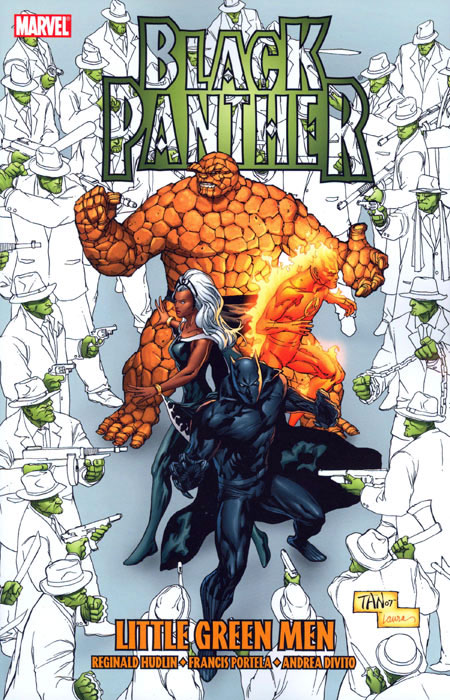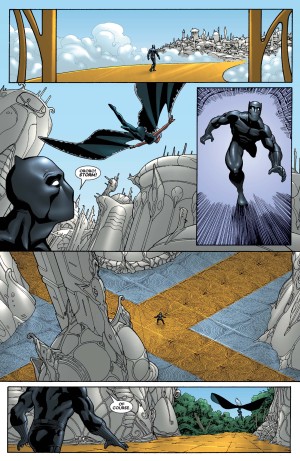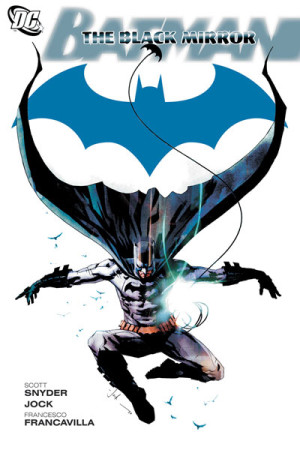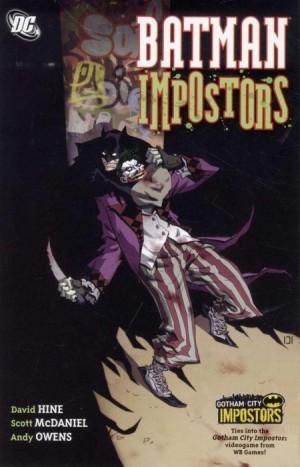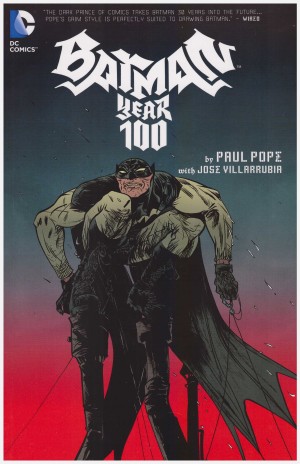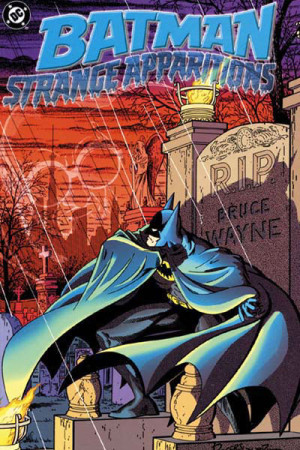Review by Ian Keogh
As a temporarily constituted Fantastic Four, the Black Panther, Storm, the Thing and the Human Torch have been jaunting between dimensions and planets. Reginald Hudlin has been using this to revisit old FF stories, and after an initial set-to with the mind-bending Psycho Man the quartet end up on a planet populated by Skrulls. This is not the planet seen in Four the Hard Way, but one where they’ve adopted a culture based on the American gangsters of the 1930s, introduced to the Fantastic Four in 1969.
While the gangsters pose a more formidable threat than might be assumed, their civilisation has also progressed, and Hudlin introduces other elements of their culture. This includes a Harlem society led by a united Martin Luther King and Malcolm X, and protected by Black Panthers. These, though, are akin to the real world 1960s radicals, rather than any cult based around the Wakandan variety. Hudlin has an obvious respect for history, and for those who put themselves on the line for social progress, but shoehorning them into what’s otherwise a trivial story creates a real awkwardness.
Hudlin’s dialogue is again unconvincing on many occasions, over the entire cast, and this has become really intrusive. At various times it’s expository, out of character, or plain poor. Having made the decision not to use narrative captions, his cast verbalise everything, and this unconvincing dialogue is so blatant at times that the editors also need called out. A further failure on their part is permitting the Panther to commit cold-blooded murder.
The shortcomings are frustrating, as the plot has many fun moments. Hudlin enjoys visiting the settings and villains from what are presumably favourite comics of his youth, and weaves unpredictable material around them.
A further admirable element of Little Green Men is that visual consistency is maintained despite three pencillers over five chapters. Francis Portela (sample illustration), Andrea Di Vito and Cafu are all very good, and their styles mesh surprisingly well.
Up next is Back to Africa, which picks up on plots seemingly forgotten.
